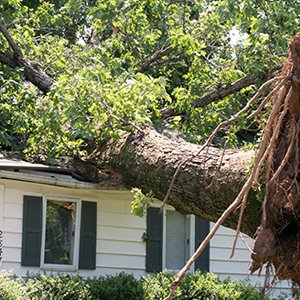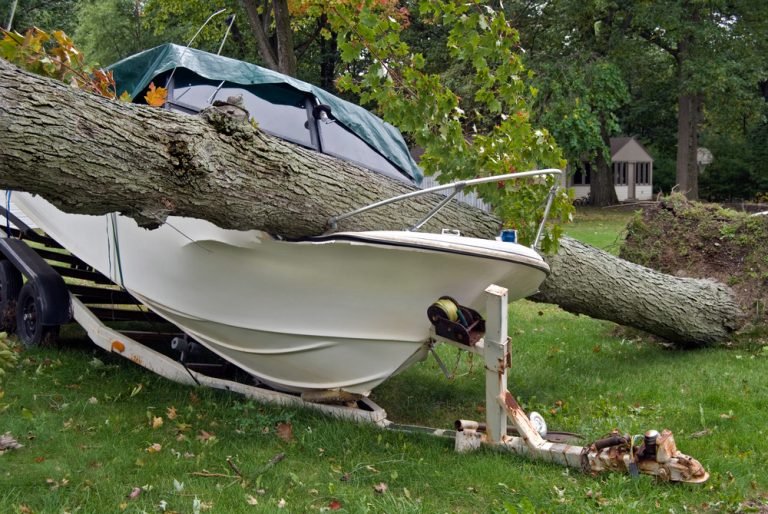How Accredited Claims Adjusters Handle Wind Damage Claims
When a powerful windstorm tears through your property, leaving a trail of damage in its wake, navigating the insurance claim process can feel like the wind is blowing you around. Understanding the intricacies of wind damage assessment and navigating policy terms can be overwhelming on top of the emotional toll of the disaster. This is where accredited claims adjusters step in, acting as your expert advocate to ensure you receive fair compensation for your losses.

Accredited claims adjusters are licensed professionals who have undergone rigorous training and passed specific exams to demonstrate their expertise in insurance claims handling. Some work independently, representing your interests, not the insurance company’s. Others work on behalf of an insurance company. Regardless of their specific employer, accredited claims adjusters follow a process to assess claims. When it comes to wind damage, they begin with overall damage assessment.
This starts with an initial inspection where the adjuster will visit your property to conduct a thorough inspection, documenting the extent of the damage with photos, videos, and detailed notes. This includes assessing damage to the roof, siding, windows, doors, fencing, and landscaping.
They will then begin identifying any secondary damage. In some cases, this may include water infiltration, mold growth, or electrical hazards. The adjuster will identify these potential problems and ensure they are included in your claim.
Accredited claims adjusters may also consult an expert. Depending on the complexity of the damage, the adjuster may consult with specialists like roofers, structural engineers, or arborists to obtain accurate estimates for repairs and replacements.
The next step in the process is to review the applicable policy or policies. The adjuster will meticulously review your insurance policy to understand the specific coverages and exclusions related to wind damage. This ensures you are claiming for all eligible losses under your policy.
Accredited claims adjusters will also gather and organize all necessary documentation to support your claim, including photos, estimates, receipts, and repair invoices. If they are an independent accredited claims adjuster, they will also handle communication with your insurance company, ensuring all deadlines are met and requirements fulfilled.
In the case of an independent claims adjuster, they will work with the insurance company’s adjuster to negotiate a fair settlement based on the documented damage and repair costs. This negotiation process often involves presenting evidence, challenging lowball offers, and advocating for your rightful compensation.
Some independent accredited claims adjusters may recommend and coordinate mitigation efforts to prevent further damage, such as tarping a damaged roof or boarding up broken windows.
Accredited claims adjusters can serve as your advocate throughout the entire claim process, guiding you through complex procedures and answering your questions. They can also help you navigate disputes with the insurance company and ensure your rights are protected.

While not mandatory, hiring an accredited claims adjuster for your wind damage claim offers several advantages:
• Expertise and Objectivity: Adjusters possess specialized knowledge of wind damage assessment, policy interpretation, and claim negotiation, ensuring you receive the maximum compensation you deserve. Their objectivity allows them to advocate for your best interests without emotional bias.
• Reduced Stress and Burden: The adjuster handles the complex claim process on your behalf, freeing you to focus on repairing your property and recovering from the emotional impact of the disaster.
• Increased Settlement Value: Studies have shown that policyholders represented by adjusters often receive significantly higher settlements compared to those who handle their claims independently.
Wind damage can be a devastating experience, but with the help of an accredited claims adjuster, you can navigate the recovery process with confidence. Their expertise, objectivity, and dedication can ensure you receive fair compensation to rebuild your property and move forward. Remember, knowledge is power, so don’t hesitate to ask questions and be proactive in your claim journey. By working with a qualified adjuster, you can turn the winds of loss into a path towards restoration.
Accredited claims adjusters are instrumental in helping policyholders navigate the complex process of assessing damage regardless of origin and ultimately recovering from the loss. Their expertise in evaluating the potential cause, structural damage, personal property loss, and secondary damages such as smoke and water damage is crucial in ensuring that policyholders receive fair compensation. By carefully documenting the damage, collaborating with experts, and understanding policy terms, accredited claims adjusters play a vital role in helping individuals and businesses recover from the devastating effects of a disaster. With their assistance, policyholders can take the first step toward rebuilding their lives and properties after a fire disaster.
For more information on how to earn your 6-20 ACA designation and join this growing field, we invite you to call our Clermont, Florida office at 1-800-309-2549 or read more about the accredited claims adjuster certification process on our website. Beyond our ACA courses, we have partnerships that allow our students to continue learning the proper ways to handle claims and continue to grow your career.
In Florida, once you earn your 6-20 accredited claims adjuster designation, you can apply to the state for your all-lines adjuster license. This will enable you to work on home insurance claims, auto and RV insurance claims and property insurance claims. You would have the flexibility to work as a staff claims adjuster or an independent insurance adjuster.
Even if you move out of the state of Florida or your practice takes you out of state, Florida has a reciprocity agreement with other states within the U.S. Individuals who obtain their Florida license are eligible to work in 34 of the 37 states across the U.S. that require an adjuster license.
